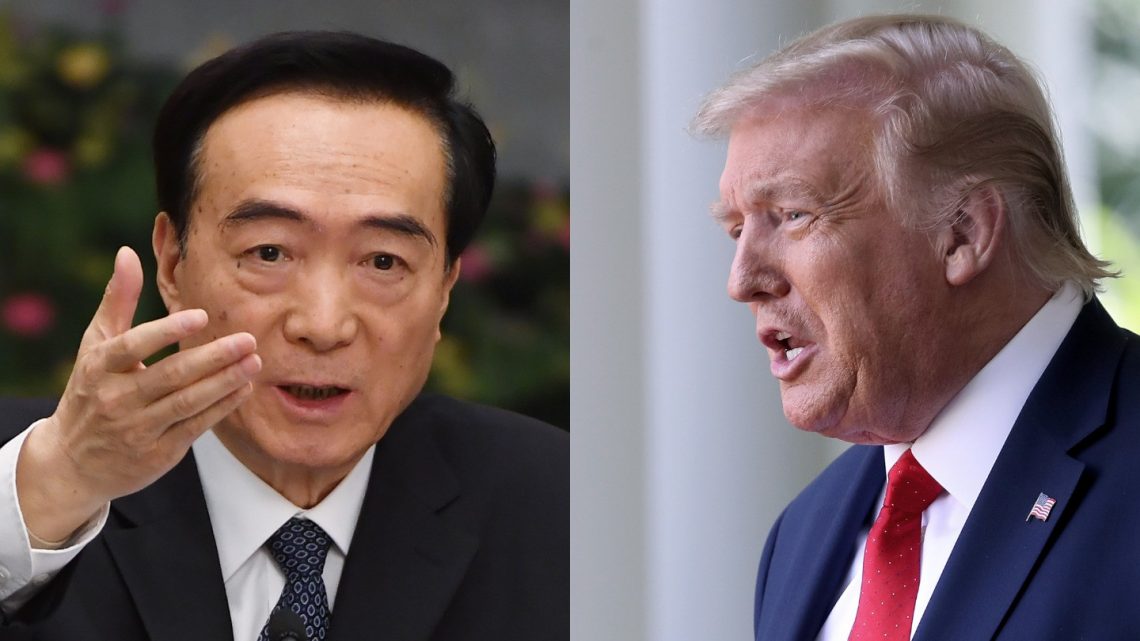
US Hits China with Sanctions Over Uighur Detention Camps
July 10, 2020The United State of America imposed sanctions on multiple Chinese officials this week over serious human rights abuses in Xinjiang, where an estimated 1.5 million Muslim Uighurs are being detained in so-called “re-education camps”.
Those targeted by the sanctions included Chen Quanguo, senior member of the Chinese Communist Party (CCP) and party secretary of the Xinjiang region, who is considered to be the architect behind the camps; Zhu Hailun, former deputy party secretary for the region; Wang Mingshan, director of the Xinjiang Public Security Bureau; and Huo Liujun, a former party secretary of the bureau. A number of sanctions were also levelled at the bureau itself, The New York Times reported.
It’s a motion that is sure to exacerbate tensions between the two countries—particularly the sanctions against Chen, who is the most senior Chinese official ever to have been blacklisted by the US. In announcing the measures on Thursday, however, the Trump administration made a point of stating that they would not tolerate the atrocities currently taking place in mainland China.
“The United States will not stand idly by as the CCP carries out human rights abuses targeting Uighurs, ethnic Kazakhs and members of other minority groups in Xinjiang,” Secretary of State Mike Pompeo declared in a statement.
A White House official similarly told reporters that "the United States calls upon the world to stand against the CCP's acts against its own minority communities in Xinjiang, including mass arbitrary detention, forced labour, religious persecution, and forced birth control and sterilisation.”
The sanctions were levied under the Global Magnitsky Act, which allows the US government to target human rights violators around the world by imposing US travel bans, freezes on US assets, and prohibitions on Americans doing business with them. As The New York Times points out, though, none of the officials are likely to hold significant assets outside China—suggesting that the sanctions are more symbolic than punitive.
US President Donald Trump signed a bill calling for sanctions against the Chinese treatment of Uighurs in mid-June, claiming that the legislation—titled the Uighur Human Rights Policy Act of 2020—“holds accountable perpetrators of human rights violations and abuses such as the systematic use of indoctrination camps, forced labor, and intrusive surveillance to eradicate the ethnic identity and religious beliefs of Uighurs and other minorities in China.”
It also accused Chen of being responsible for "gross human rights violations", in what is the first historic instance of the US calling for sanctions on a member of China’s Politburo, the executive committee of the CCP.
In 2019, VICE News’ Isobel Yeung posed as a tourist to gain unprecedented access to China’s western Xinjiang region, which has been nearly unreachable by journalists.
Following Trump’s signature of the bill, China responded by threatening retaliation and “countermeasures” against the US, and warned them to stop meddling in the country’s internal affairs.
"We again urge the US side to immediately correct its mistakes and stop using this Xinjiang-related law to harm China's interests and interfere in China's internal affairs," China's Foreign Ministry said in a statement. "Otherwise, China will resolutely take countermeasures, and all the consequences arising therefrom must be fully borne by the United States.”
The Ministry did not provide details around what those countermeasures might entail.
America’s sanctions have been welcomed by many prominent members within pro-Uighur and human rights communities. Renee Xia, director of Chinese Human Rights Defenders, took to Twitter to celebrate the announcement—and urged other countries around the world to follow suit.
"May the UK, Canada, Australia and the EU take similar actions," she wrote. "Hope the Admin will implement this law to sanction Chinese officials who commit abuses in Tibet, Hong Kong or on the Mainland."
Other human rights defenders praised the sanctions against Chen, who has overseen a rise in mass detentions of Uighurs, Kazakhs and other Muslim minorities since becoming the Communist Party secretary of Xinjiang in August 2016.
“Chen Quanguo is truly one of the worst human rights abusers in the world today, and he cut his repressive teeth in Tibet,” said Matteo Mecacci, president of the International Campaign for Tibet. “By developing a model of intense security and forced assimilation in the Tibet Autonomous Region, then implementing and expanding on that model in Xinjiang, Chen has inflicted untold suffering on millions of Tibetans, Uighurs and other non-Chinese ethnic groups.”

